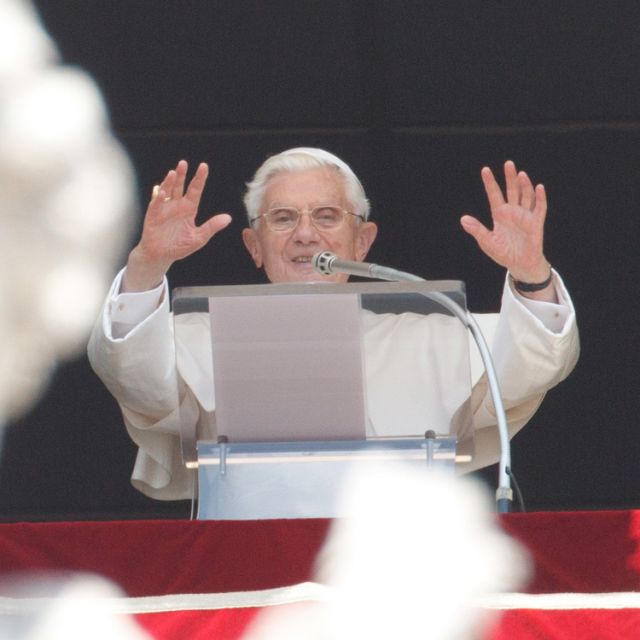The working document, released June 19, said the bishops and other synod participants will focus on: faith in Jesus as the heart of evangelization; how changes in the world impact belief and the practice of the faith; how liturgy, catechesis and charitable activity do or should bring people to faith; and a look at particular ways Catholics evangelize and educate people in the faith.
The new evangelization, it said, "will also involve the courage to denounce the infidelities and scandals" within the church and "to acknowledge faults while continuing to witness to Jesus Christ."
Looking within the church, the document said, "many lament the excessive bureaucratic character" of church structures, which are "perceived as being far removed from the average person and his everyday concerns."
The synod's working document is based on responses to a long outline and questionnaire published in March 2011. The responses came from 114 bishops' conference, 26 Vatican offices and the international unions of superior generals of men's and women's religious orders, said Archbishop Nikola Eterovic, secretary-general of the synod.
"Some responses," the document said, "complained of the excessively formal character of liturgical celebrations, an almost routine celebration of rituals and the lack of a deep spiritual experience, which turn people away instead of attracting them."
At a news conference June 19, Archbishop Eterovic said the synod will attempt to respond to "the need for new instruments and new expressions to make the word of God understandable in the lives of contemporary man."
Pope Benedict called the synod to respond to a situation where, "because of a lack of faith, various particular churches are witnessing a decline in sacramental and Christian practice among the faithful to the point that some members can even be called 'nonbelievers,'" the document said.
During the synod, the church also will mark the 50th anniversary of the opening of the Second Vatican Council and the launch of the Year of Faith called by Pope Benedict to energize Catholics and Catholic communities and promote a deeper knowledge of the essential tenets of faith.
"The Year of Faith will remind us of the foundation of the new evangelization: faith in Jesus Christ," Archbishop Eterovic said.
In evaluating signs that call for a renewed evangelization of the baptized, the working document cited: "a weakening of faith in Christian communities, a diminished regard for the authority of the magisterium, an individualistic approach to belonging to the church, a decline in religious practice and a disengagement in transmitting the faith to new generations."
The document said cultural changes, especially secularization -- accelerated and spread by globalization and greater global access to media -- are creating a situation in which many people see faith as unimportant, old fashioned or simply irrelevant to modern life.
At the same time, it said, more and more people show signs of despair, selfishness, loneliness and a lack of purpose in life.
Faith in Jesus Christ brings the joy, enthusiasm, hope and love people need to live better lives, it said.
When faith effectively transforms people's lives, it said, the results are "families which are a true sign of love, sharing and a hope which is open to life; communities equipped with a true ecumenical spirit; the courage to support initiatives for social justice and solidarity; and the joy of giving one's life to the priesthood or the consecrated life."
The document said a major challenge to the new evangelization is the growing idea that faith is opposed to freedom and that the church's claims to know what is true is suspect or even dangerous.
Many people today show "a widespread disorientation, which leads to forms of distrust of all that has been passed down about the meaning of life and to an unwillingness to adhere in a total, unconditional manner to what has been revealed as the profound truth of our being," the document said.
While many Catholics who question the church's claims of truth may continue to do good works, without the strength of faith and the support of the Christian community, it said, their good works are bound to weaken over time and their activity will lose its power to bring others to Christ.
One of the most effective ways to show people how faith brings true freedom, it said, is through "the witness-value" of devoting one's life "in love to those who are lonely, marginalized or rejected, precisely because the face of Christ is reflected in these people."
Archbishop Eterovic told reporters, "Charity should be the language of the new evangelization."


